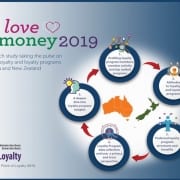THE RIPPLE EFFECT OF THE ONLINE GAMBLING INDUSTRY
An interesting article from Huffington Post about how online gambling is changing the face of the industry and why it has to be regulated, not banned.
Every day, millions of people around the world decide that instead of running to the mall for a new shirt or to the grocery store for another bag of coffee, they can stay at home (or at the office) and purchase those items without ever getting into the car, bus or train. Commerce, in almost every shape and form, is continually being taken over by the internet, as we are collectively becoming a species dependent upon our connection to the web.
Today, you can do and buy pretty much anything online. If you don´t like standing in lines, TaskRabbit is a website where you can “hire” someone to stand in line for you at the bank and let you know when you´re the next up.
While proponents and supporters of the inevitable march of progress and technology will tell us that we must adapt in order to survive, the reality is that millions of people around the world are being left behind because of their inability to stay on top of the continually shifting technologies that define ever-larger parts of our economic livelihoods.
In the case of the gambling industry, more and more people (especially Millennials) are avoiding those epic trips to Las Vegas or Atlantic City in favour of regular online gambling. The global online gambling market topped 40 billion dollars in 2016, and over 40% of those online gamblers were young people between the ages of 21 and 34.
While many upstart online entrepreneurs might find this shift to online gambling as an enticing economic opportunity, there are always numerous effects that come with moving a substantial part of our economy into the realm of the internet. As the poet Wendell Berry reminds us, in our steadfast march towards the future, we rarely take the time to sincerely weigh the effects of progress against what has worked in the past.
The Loss of Revenue from Indian Gaming
In the United States, one of the main forms of revenue for dozens of indigenous communities comes from casinos that are autonomously and independently operated by the reservation authorities. In many cases, the profit generated from these casinos is a major contributor to people who have long been amongst the poorest and most marginalized in the country. Furthermore, the revenue from these casinos is often reinvested into other forms of job creation. Over three-quarters of the profit from casinos run by the Cherokee Nation was recently reinvested into a job growth fund that helped other members of the Cherokee tribe find meaningful and steady employment opportunities.
One study finds that in the early years of mostly unregulated online gaming, upwards of $0.30 of every dollar was taken from commercial casinos, including Indian-run casinos, by the online gambling industry. However, despite the potential loss in important revenue that could be caused by the spread and growth of online gambling, several indigenous tribes in the United States that run casinos are looking to expand into the online gambling industry. If successfully implemented, this would help tribes improve revenue through marketing to an audience from around the world along with the regular clientele from their region.
A Potential Source of State Tax Revenue
In March of this year, online casinos in the state of New Jersey sent over 3 million dollars to the state in the form of tax revenue. While one study finds that state tax revenue from regular casinos has been largely stagnant since 2008, the rise in regulated online gambling could help states increase their needed tax revenue in order to deal with public budget deficits. The most obvious benefit is that states (and smaller governments around the world who regulate online gambling) will gain the ability to tax an industry that is used by people from all around the world.
In the U.K., the 2014 Gambling Bill required all regulated online casinos to pay a 15-cent consumption tax. Furthermore, in order to better regulate the industry, this law required every online gambling site to apply for a license from the gambling commission. Unfortunately, a large percentage of the 45 billion dollars a year online gambling industry is monopolised by offshore companies or websites. While this is illegal, these websites usually ignore the illegality of their operations thinking that they are too far away to face any serious prosecution attempts.
If the online gambling industry is going to have a positive public effect, it needs to be regulated by both national and state governments to make sure that the taxed revenue is reinvested in the country instead of disappearing into offshore accounts. In the UK, one casino review website offers a list of the top 10 online U.K. casinos that are licensed and regulated by the government.
Less Risk Involved
Lastly, the slow yet seemingly steady transition from land-based casinos to online gambling might also have an effect on how people gamble. For people who enjoy table games such as blackjack and roulette, most land-based casinos will charge a minimum $10 bet to be able to play. Online casinos, however, have much lower minimums, often allowing you to play Blackjack with players from around the world for as little as a $0.10 minimum bet.
While the move from regular casinos to online gambling will certainly cause unwanted effects for many people involved, it also holds the possibility of positive outcomes.
Read the article at HuffingtonPost here >>










